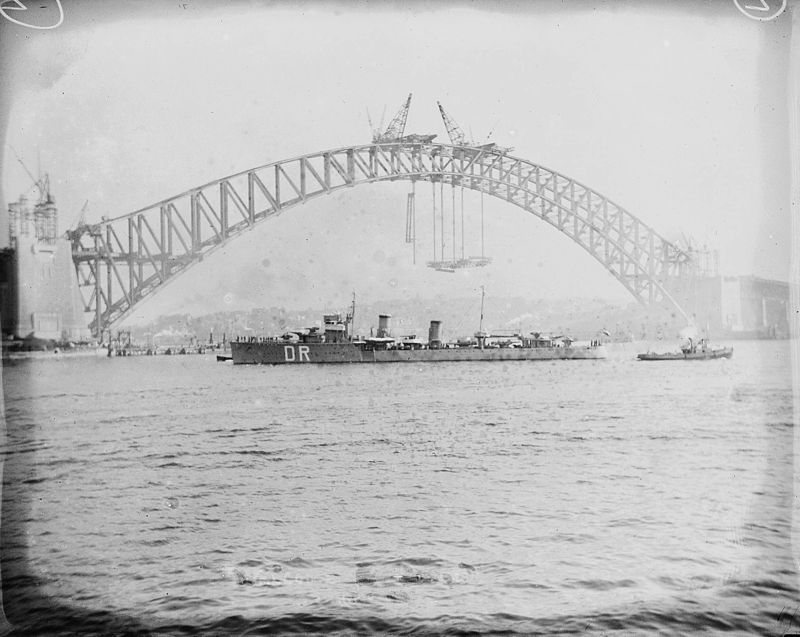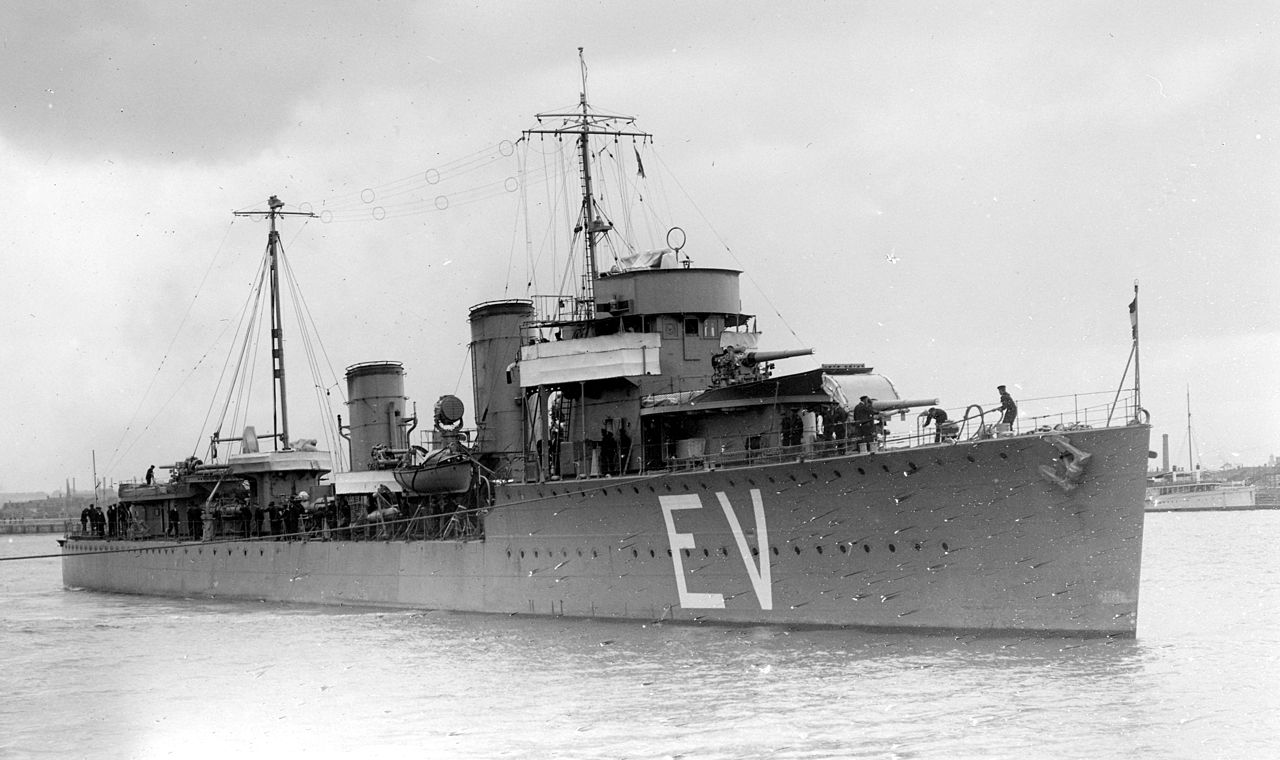Hr. Ms. Van Ghent
| Name | Hr. Ms. Van Ghent |
| Nationality | The Netherlands (Details) |
| Period | none |
| Type | Destroyer |
| Warship Class | Admiralen (Details) |
| Year Launched | 1926 |
| Year Commisioned | 1928 |
| Last Year Active | 1942 |
| Status | Scuttled |
| Source of Text | Wikipedia |
| Credit Link | Link |
History:
HNLMS Van Ghent (Dutch: Hr.Ms. Van Ghent) (originally named De Ruyter) was an Admiralen-class destroyer built for the Royal Netherlands Navy in the 1920s. The destroyer served in the Netherlands East Indies but was wrecked after running aground in 1942.
Class:
The Admiralen class were eight destroyers built for the Royal Netherlands Navy between 1926 and 1931. All ships fought in World War II and were scuttled or sunk.
These ships were built in the Netherlands with assistance from the British company Yarrow (at that time the leading builder of destroyers in the world). The Dutch ships were based on the British destroyer HMS Ambuscade. A novel feature was the provision of a seaplane for scouting. There was however no catapult, the plane being lowered into the sea by a crane. The differences between the two groups were minor; the second group was fitted for minesweeping rather than mine laying, and they carried one less 75-millimetre (3 in) gun for 30 tons of fuel.
These ships were built in the Netherlands with assistance from the British company Yarrow (at that time the leading builder of destroyers in the world). The Dutch ships were based on the British destroyer HMS Ambuscade. A novel feature was the provision of a seaplane for scouting. There was however no catapult, the plane being lowered into the sea by a crane. The differences between the two groups were minor; the second group was fitted for minesweeping rather than mine laying, and they carried one less 75-millimetre (3 in) gun for 30 tons of fuel.
Nationality:
The Netherlands, a country in northwestern Europe, is known for a flat landscape of canals, tulip fields, windmills and cycling routes. Amsterdam, the capital, is home to the Rijksmuseum, Van Gogh Museum and the house where Jewish diarist Anne Frank hid during WWII. Canalside mansions and a trove of works from artists including Rembrandt and Vermeer remain from the city's 17th-century "Golden Age."
Item created by: gdm
on 2019-10-07 15:50:41
If you see errors or missing data in this entry, please feel free to log in and edit it. Anyone with a Gmail account can log in instantly.
If you see errors or missing data in this entry, please feel free to log in and edit it. Anyone with a Gmail account can log in instantly.









